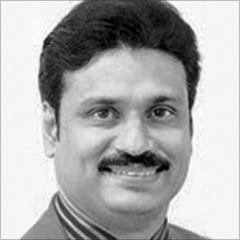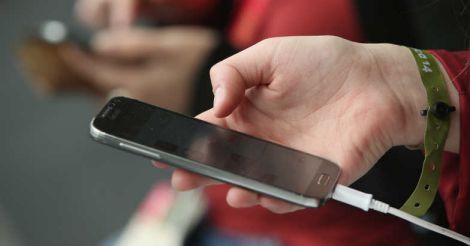'Mobile is everything' is the theme of the Barcelona Mobile World Congress.
Smartphone has become a part of our lives. The number of mobile connections, which were 58 crore five years ago, has reached about 100 crore.
More people today use smartphones for value-added services than voice calls. About 90 per cent of the approximately 33 crore people who regularly use internet in India access it through mobile phones.
Frequent disconnection of mobile networks (call drops) is a major shortcoming on the part of service providers.
The Telecom Regulatory Authority (Trai) had asked service providers to pay users Re 1 for each call drop and a maximum of Rs 3 a day.
But telecom companies challenged the order in court. They insist on paying compensation only after the court verdict.
The main reason for the unbearable increase in call drops in the past few months is inadequate basic infrastructure due to the failure of service providers.
Though more people have started using value-added services through mobiles, telephone companies have not increased network facilities proportionately.
The most important thing is to build adequate number of telecom towers. Telecom companies cite the absence of adequate number of towers as the main reason for call drops.
A section of the public is partly responsible for this situation. Thousands of towers have been left halfway in the country due to the objection of the public. The reason is the mistaken notion that telecom towers emit dangerous levels of radiation. The radiation from telecom towers is non-ionizing and is not dangerous like X-rays.
Like the signals to radios and televisions, the radiation limit set for mobile towers in India is ten times lower than international standards.
Permission to operate towers is given only after inspection by the Telecom Enforcement and Resource Monitoring Cell (TERM Cell) of the telecom department.
Not only that, they inspect 10 per cent of all towers every year. The TERM Cell office in Kerala is in Kochi, and doubts can be cleared there.
The World Health Organisation and many research teams have made it clear that towers do not emit dangerous radiation.
There are clear verdicts and observations by courts in cases pertaining to towers. In 2013, the Kerala high court had pointed out that there was no evidence to show that towers were a threat to health. Similarly, Gujarat, Allahabad and Madras high courts have said that the public need not fear tower radiation.
In its September 2015 verdict, the Delhi high court went a step further and said that the attitude of “we need cellphones but not towers” was not right.
To show that the public’s fear is unwarranted, Kerala government has said that it would permit towers on all government buildings. Towers could not be erected on government buildings because of the ignorance of officials authorised to give permission, confusion over the strength of the building and lack of clarity about rent.
Trai has brought these issues to the attention of the chief secretary of Kerala. Similarly, telecom companies must be willing to share each tower. They should consider installing receivers on the same tower. If these things are done, we will be able to use mobile phones anywhere without getting disconnected.
(The writer is an adviser to the Telecom Regulatory Authority of India and is in charge of Kerala, Karnataka, Goa and Maharashtra)

























 The curse of call drops.
The curse of call drops.
Disclaimer
The comments posted here/below/in the given space are not on behalf of Manorama. The person posting the comment will be in sole ownership of its responsibility. According to the central government's IT rules, obscene or offensive statement made against a person, religion, community or nation is a punishable offense, and legal action would be taken against people who indulge in such activities.